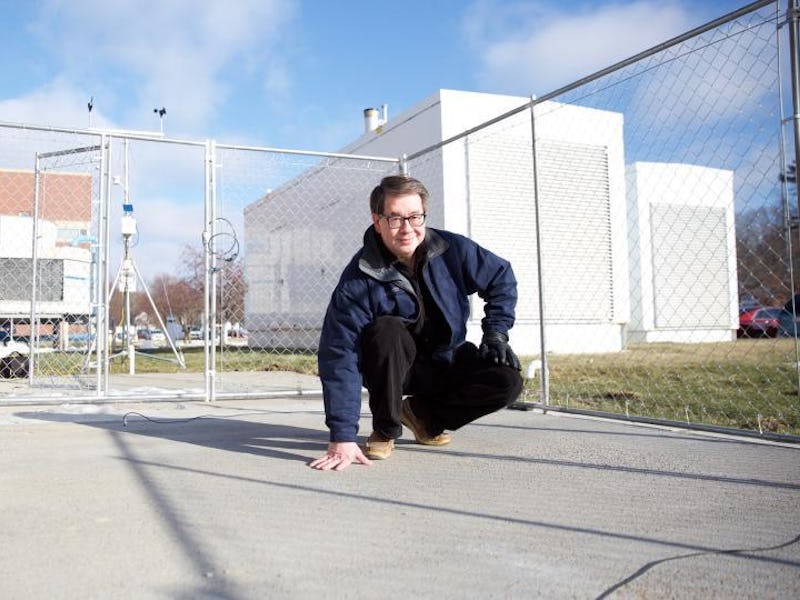The Heated Driveway of the Future Is Being Developed in Nebraska
A college professor in Nebraska is working on electrified concrete.

Imagine: No more shoveling snow. No more scraping ice. You have a heated driveway. An exciting new project out of the University of Nebraska-Lincoln has yielded nothing less than “electrified concrete.”
This so-called “electrified concrete” is really a special mix of pavement that can conduct electricity such that it heats up to sufficiently melt through the snow and ice. This special substance is mostly standard concrete, but 20 percent is comprised of carbon particles and steel shavings that conduct electricity throughout its slabs.
For now, it is cost-prohibitive to pave entire roads with this stuff, but it could easily be deployed to the key stretches of pavement that suffer most during winter storms, like bridges and parking lots.
A slab of conductive concrete demonstrates its de-icing capability during a winter storm in December 2015. The concrete carries just enough current to melt ice while remaining safe to the touch.
Tuan’s research is funded by the Federal Aviation Administration, not because it wants to make automatically de-icing runways, but because it needs an easier way to keep the tarmac around airport gates clear of snow and ice. As airport workers direct newly landed airplanes to turn them around for their next flight, they have a variety of carts that need to be loaded and unloaded — luggage service, food service, trash service, fuel service, and so on. When foul weather slows this process down, it contributes to weather-related delays far more than any snowy landing strip.
It’s far more affordable to push electricity through this new pavement than to cover the pavement with salt, sand, and corrosive de-icing chemicals. Future plans envision a completely automated system: The heated pavement activates itself when it detects inclement weather is afoot.
“I have a patio in my backyard that is made of conductive concrete,” Tuan said in a press release. “So I’m practicing what I preach.”